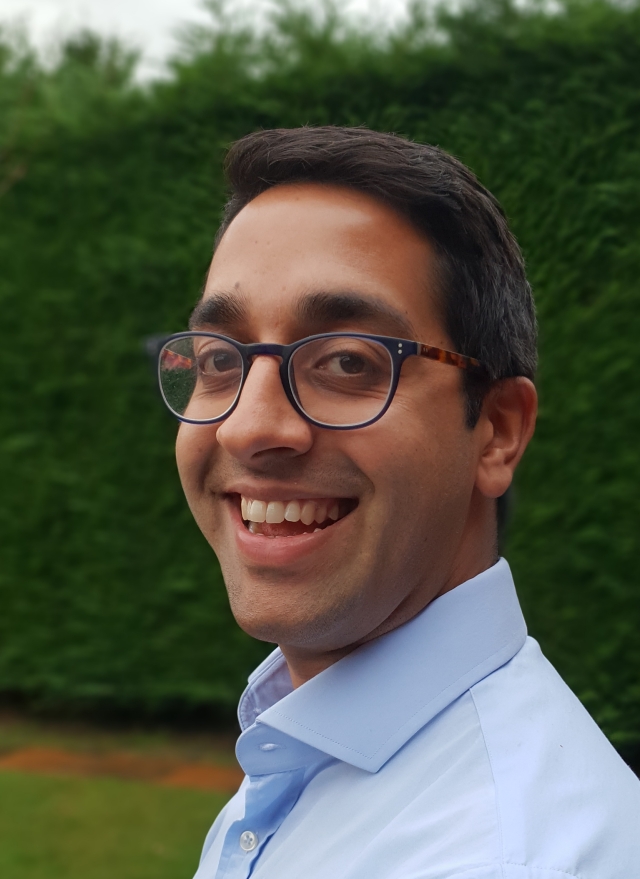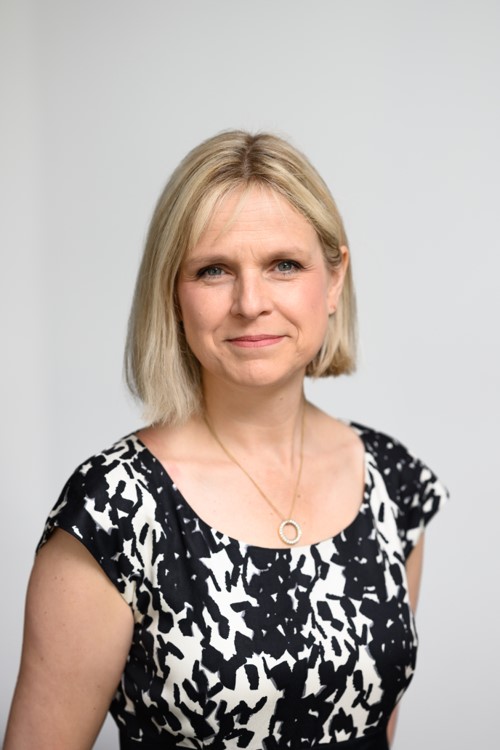Meet Laura Earnshaw, founder of myHappymind, an award-winning, NHS-backed curriculum for primary schools and nurseries that teaches children lifelong habits to have good self-esteem, resilience and ultimately good mental health. Laura tells us about her first light bulb moment, which was when her child started school, her dreams of getting into every primary school across the country and her top three pieces of advice for innovators.
Tell us a little bit about your innovation. The what and the why?
We are focused on early help and prevention and believe that if we ever want to sustainably tackle the mental health crisis in the UK, we have to be doing more than just reacting when a child is struggling and creating a systemic change in the culture of schools so that children are learning positive and preventative mental health strategies from an early age. Rather than waiting until there’s a problem, we’re trying to build resilience and self-esteem so that children can cope themselves when facing tough times.
What was the light bulb moment?
Before I started myHappymind I was the global head of talent and development for AstraZeneca, responsible for teaching senior leaders about resilience and wellbeing. The first light bulb moment was when my child started school. They’d always been pretty shy and reserved, but we never had any challenges. Starting school was a really tough time and they would cry every morning and night, so I went into their school to put a plan in place to help them. The school gave me two pieces of advice: the head teacher told me that my child needed to man up and the class teacher told me that they needed to develop a stiff upper lip.
It’s fair to say I was totally shocked that this was their advice for a clearly distressed parent with a clearly distressed four year old. So I went home and started to map out the things that I knew they needed help with: self-regulation, building their confidence and self-esteem and getting along with friends. I realised that this was what I was already teaching senior leaders and organisations. So I worked with my child over the next six months and the improvement was so noticeable that the school called me back in and asked what I’d done, because all of a sudden my child was confident, had friendships and was coming in happily. I told them I’d focused on the science backed strategies that work to build self-esteem and resilience. The school asked me to share what I’d done with them because there were more kids with the same problems, and they weren’t trained in handling them.
That was my first light bulb moment. The reason they fobbed me off wasn’t because they didn’t care, but because they didn’t know what to do. I started to look into what the training was for primary school teachers and I realised that there was nothing in place for teaching mental health; the only time a school gets involved is when there’s a problem.
The second one was when I received a phone call to tell me that somebody in my family had been sectioned. This was someone who, from the outside, looked like they had it all together. Visiting them in the secure mental hospital was for sure the most traumatic experience of my life. When I was driving back I just thought, ‘if mental health issues can affect my child who’s grown up in a loving, happy home, and this person that seemed to have it all together, then this is a massive issue that can affect anybody.’
I decided there and then that I was going to quit corporate life and try to build something for primary schools to teach preventative habits for good mental health.
Which AHSNs have you been supported by?
The main one is Health Innovation Manchester, which has been really helpful. They get what I’m trying to do and they’re constantly trying to find opportunities for me, so I’d really like to thank them.
We were also recently invited to a roadshow by Kent Surrey Sussex AHSN and have been helped by Yorkshire & Humber AHSN to get a Commission.
What’s been your toughest obstacle to date then?
So I would say the toughest obstacle is finding and speaking to the right people in the NHS. We’ve now got 10 commissions from different places within the ICS structure and we’re working in over 700 schools across the UK. We have all of this amazing impact data to show, for example we’ve proven that we reduce CAMHS referrals by over 40%. The hard thing is just getting in front of the right people and sharing this data with them because the NHS is so complex and ever-changing.
What are your hopes for the future?
Trying to get myHappymind into as many schools as we can. If every single primary school could stop firefighting when it comes to mental health, but they were building resilient children with good self-esteem and good mental health, that would be the ultimate dream for me: that no child is deprived of learning really simple habits that can be transformational when it comes to how they feel about themselves and the world. So my hopes and dreams are that we can get into every single school in the UK.
What’s the best part about your job?
Seeing the impact that we have on children. You only need to go on our Twitter to see examples of kids using the strategies. Second to that is when I find the forward thinking commissioners that get it and who light up when I tell them what we’re doing.
What are your three pieces of advice for budding innovators?
- Back yourself and have the confidence to get those conversations in the diary and start sharing what you’re doing.
- Have some real evidence and real data, even if it’s small scale, as it’s the first thing anyone will ask.
- Don’t assume that it’s going to be a scary conversation. I’ve had some wonderful, generous and kind conversations with commissioners, and they’ve probably got the same goals that you’ve got.

The government has set out three shifts it wants to see happen: treatment to prevention, hospital to community, analogue to digital. HealthTech has a crucial role in supporting the delivery of all three. But using technology to help deliver these changes requires procuring the technology, and when all the noise is about there being no [...]

Dr Anish Bhuva, is the founder of Pace MRI, a Consultant Cardiologist at Barts Heart Centre and an Associate Professor at University College London. Tell us about the innovation. What does it do, how does it help, who does it help and why is it important? Pace-MRI is an award-winning digital tool that manages complex [...]

As we celebrate International Women’s Day, Anna King, Commercial Director at Health Innovation Network South London, identifies how FemTech is 'Accelerating Action' in UK healthcare and driving economic growth. In recent years, FemTech - the sector focused on women’s health and wellness technology - has gained significant traction globally. In the UK, this growing sector [...]









